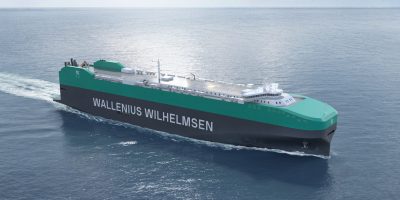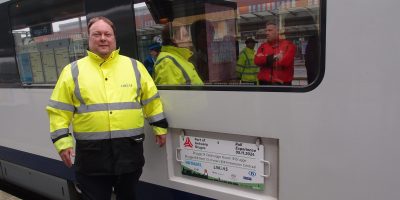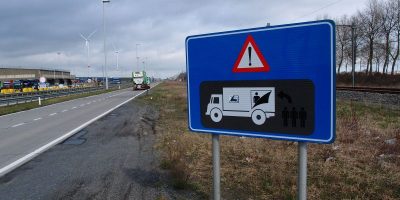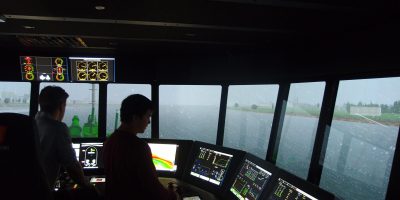
For more synergy between the various activities at its terminals, Wallenius Wilhelmsen created the overarching position of general manager operations. At Zeebrugge, Cedric Bulcke was promoted to new top manager.
Scandinavian ro-ro group Wallenius Wilhelmsen has two diverse activities at each of its global sites: terminal and ship operations on the one hand, and technical services on the other. The latter include the modification of shipped machinery and the final finishing of new cars. To create more synergies between these two departments, it was decided to appoint one general manager operations.
In Zeebrugge, from May to June, that overarching function was temporarily assumed by the (internally) experienced Sam De Spiegelaere. From July, Bulcke, who had been with Wallenius Wilhelmsen for eight years, was permanently appointed general manager operations.
Via Argentina to Zeebrugge
Bulcke is a 32-year-old born and raised in Oostende. He studied applied economic sciences at UGent, which he majored in finance. “From my interest in transport and logistics, I added the one-year master-after-master maritime sciences. After those studies, PIANC (the world organisation for water-related infrastructure) allowed me to do a three-month internship at a branch of the Danish group APM Terminals in Buenos Aires (Argentina).”
Those on-the-job experiences were necessary to make the right decisions later on
“Back in Belgium, I applied for a job in Zeebrugge at Wallenius Wilhelmsen, the world’s largest ro-ro shipping company with a strong history, presence everywhere and a strong focus on sustainability and nature conservation. I was allowed to start there as cargo superintendant: planning how to optimally unload and load a ship, and devising solutions to that end together with the port workers. That year was followed by another year as team leader in the yard to get to know the practice on the landside. Those experiences on the shop floor were particularly instructive and necessary to make the right decisions later on. At the end of 2017, I became terminal operations manager, reporting to the general manager terminal.”
Leading transition green energy
After reforming the management of operations, Bulcke has been overall general manager operations since July. “It is a good thing that the two branches now work closely together to optimise cargo flows and provide solutions to customers.” Zeebrugge is Wallenius Wilhelmsen’s largest branch worldwide. It employs some 700 people, a group that includes clerks, workshop workers and dock workers on the timetable.
“We belong to a stable company that does not wait and see but leads change itself. We are taking the lead in the transition to green energy. Examples include the ongoing development of the cargo sailing vessel ‘Orcelle Wind‘ and the recent commissioning of the first phase of our new Orcelle Terminal. There, we created 32 hectares of new space in a sustainable way, which will be supplemented to 49 hectares with three quays in a few years’ time. That means a doubling of our Canada Terminal (50 hectares).”
Largest onshore project
“We mainly specialise in heavy machinery exports: we ship 50,000 high & heavy units annually. Previously, we handled only 25% imports but with the increasing supply of cars and machinery from China, we are moving towards a 50-50 ratio. Therefore, the Orcelle Terminal is primarily focused on imports. With the additional capacity of the current finished section, we aim for 50% growth in car handling by 2024. It is also economically and ecologically interesting if you can fill the vessels optimally in both directions.”
Finding sufficient truck transport to end customers is a challenge
“The Orcelle Terminal is Wallenius Wilhelmsen’s largest onshore project. Thanks to the commitment of our people in Zeebrugge, we were awarded that investment. The new terminal had an immediate positive effect on business; we have no congestion at our sites. But finding sufficient truck transport to the end customers is a challenge,” Bulcke concludes.




